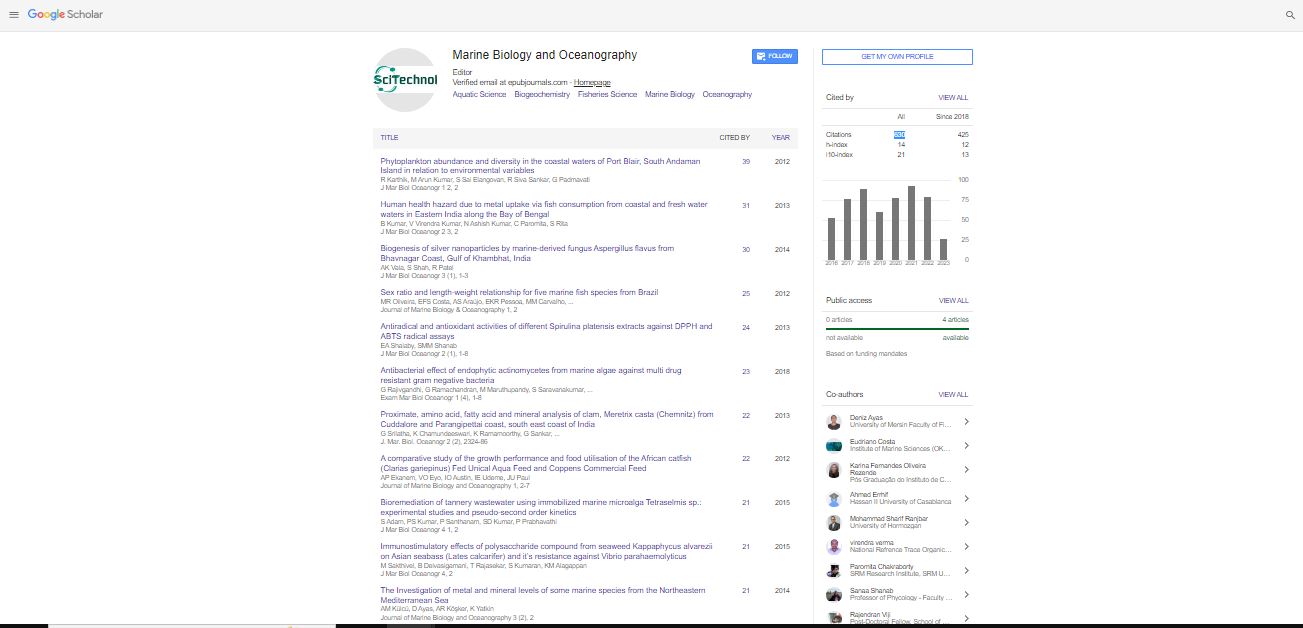Review of coral reefs in India
Shruti Manish Joshi
Mumbai University, India
: J Mar Biol Oceanogr
Abstract
Coral reefs are considered to be the rainforest of the sea and have about a quarter of known marine biodiversity around it. They also play an important role in purifying the oceans and protection of shorelines. However, they are highly sensitive to pH and temperature changes. Due to increase in sewage, oils and toxins and many more factors, the physical environment of the oceans is changing very rapidly and this has led to a massive loss of coral reefs in India which has the sixth largest atoll in the world, also a lot of species have become endangered and more of them fall in this category every year. We cannot be precise about how much and where, because of special difficulties of monitoring underwater. The reef condition is poor and declining in near shore waters and areas of high population density. Sedimentation and dredging are damaging near shore reefs, while the use of explosives and bottom nets in fishing are damaging offshore reefs at various sites. Also, global warming is increasing the acidity of the ocean. India being a developing country lacks the technology required to save the corals but has so far only managed to study them. A large number of the corals are still understudied. Although laws are sufficient in theory to protect the reefs in India, authorities have taken little effective action in implementing them. Hence sustainable development, which is being practiced at a smaller scale in areas which are accounted for in India, needs to be practiced on a larger scale.
Biography
Shruti Manish Joshi is pursuing her Bachelor of Science degree in Zoology from K.J. Somaiya College of Science and Commerce affiliated to Mumbai University in India. She has attended National Initiative on Undergraduate Science (NIUS) held by Tata Institute of Fundamental Research, Mumbai, India along with numerous inter college programs and seminars.
 Spanish
Spanish  Chinese
Chinese  Russian
Russian  German
German  French
French  Japanese
Japanese  Portuguese
Portuguese  Hindi
Hindi 
